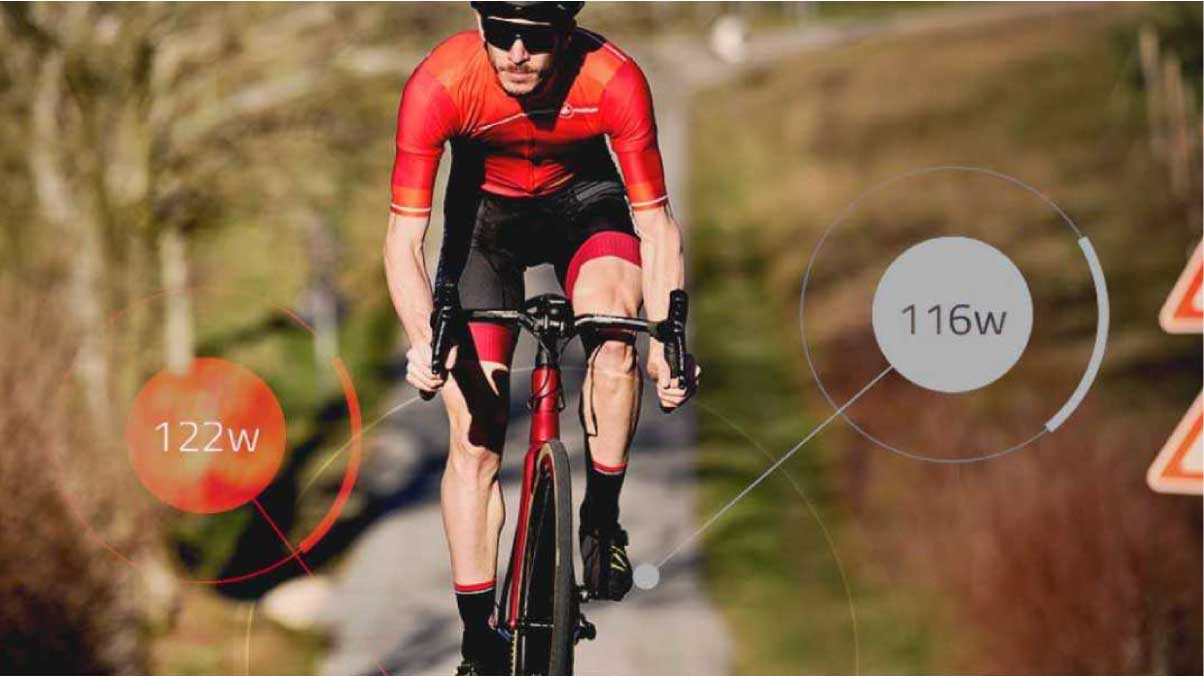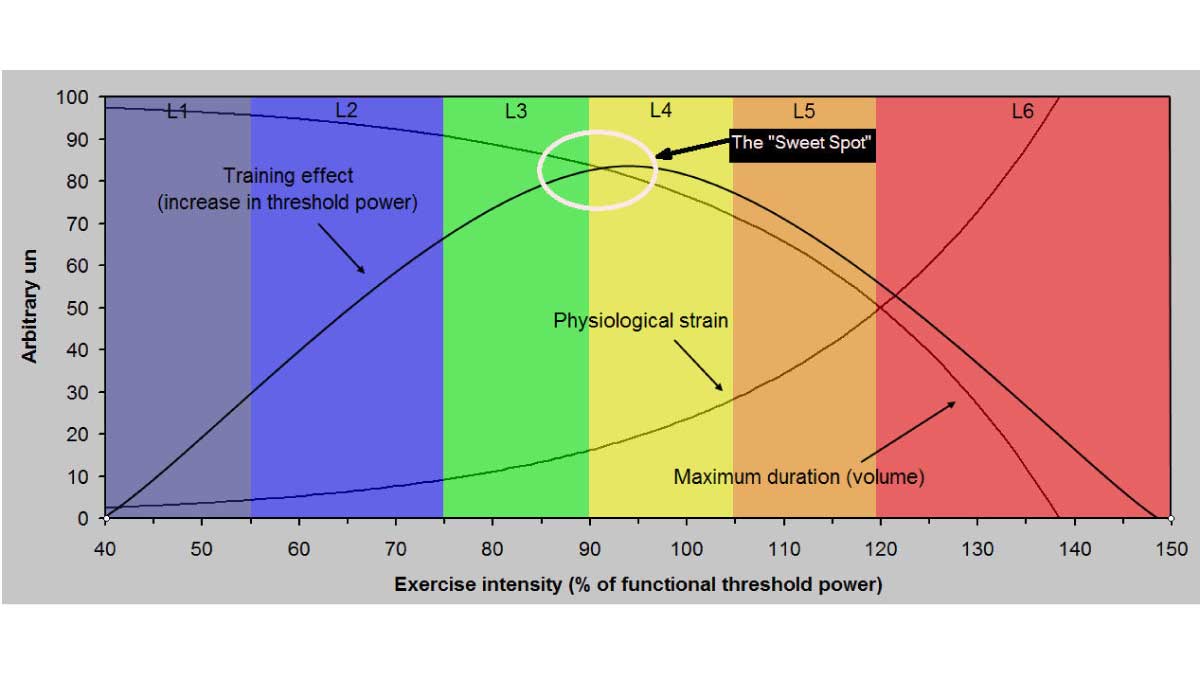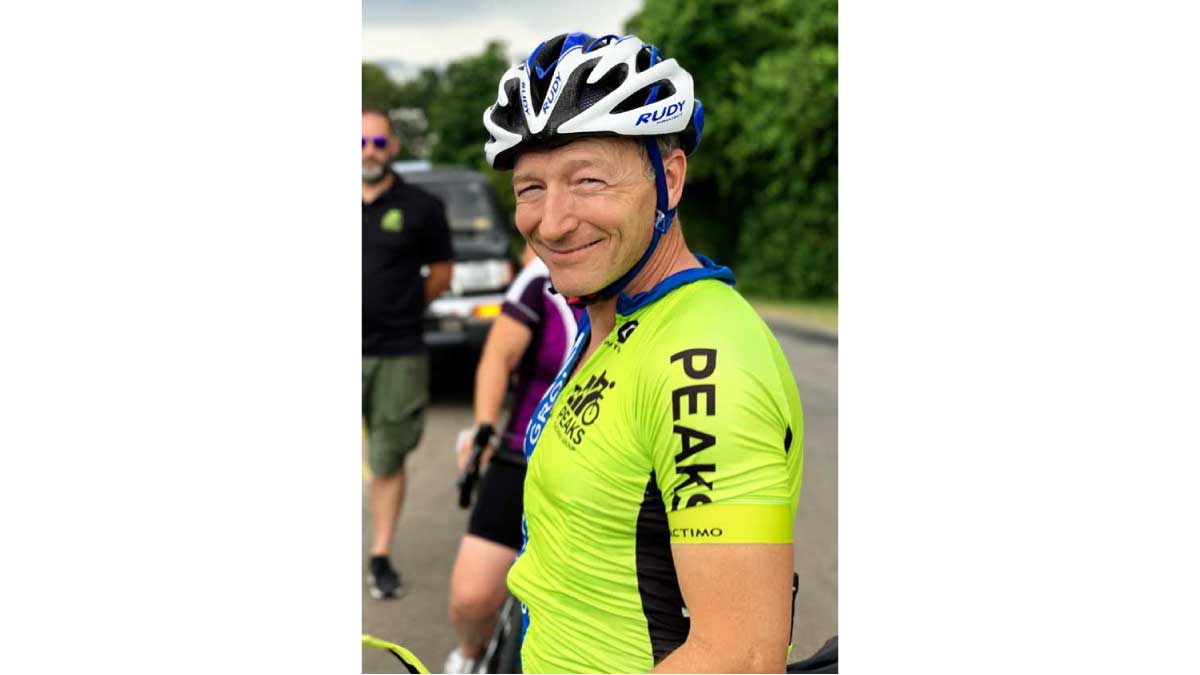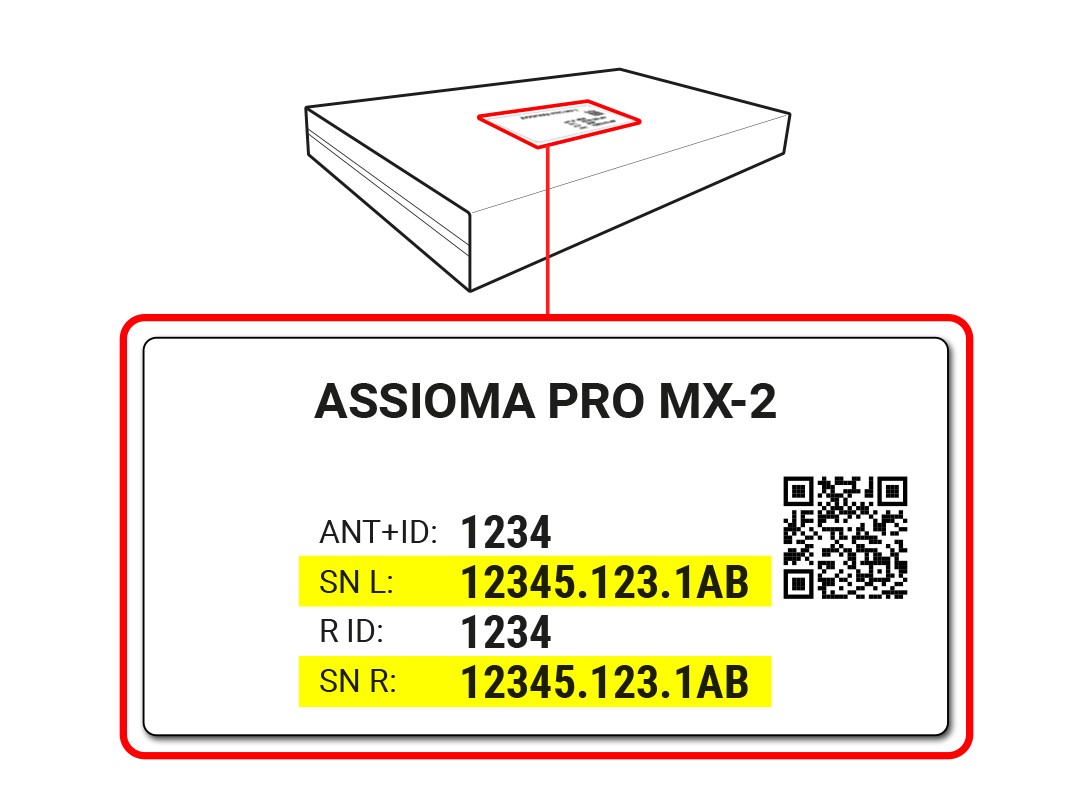How to Improve Your FTP
Tips & TrainingINDEX
by Hunter Allen
The goal of every cyclist is to improve their overall speed when riding so that we can ride with a faster group, achieve our racing goals, or meet our time goal for a Gran Fondo. Increasing your overall, average speed is the result of improved cardiovascular fitness.
We can improve this by training with a power meter like Assioma and working to improve our FTP (functional threshold power).
A higher FTP means greater cardiovascular fitness which results in a faster overall speed. For example, if your FTP is 200 watts, you might be able to average 32kph for an hour and if you improve to 230 watts, you might be able to average 38kph for an hour, a significant increase!

The importance of working your cardiovascular system
Increasing your FTP comes by doing specific workouts designed to stress your cardiovascular system and improve your lactate tolerance.
Workouts that focus on riding near and in FTP (zone 4) are key to improving your FTP.
When you first start training your FTP, you want to make sure that you do plenty of workouts just below your FTP. By doing intervals just below your FTP, you will create enough training stress to make FTP improve.

Intervals at 88-93% of your FTP
Target riding between 88-93% of your FTP and doing intervals at least 15 minutes long and even better if you can do 2 or 3 of these in a workout. Riding between 88-93% of your FTP is called riding in your “sweet-spot” because its hard but do-able and you can do it for a relatively long time.
In figure 1, this graph developed by the Dr. Andrew R. Coggan and co-author of our book, “Training and Racing with a Power Meter”, illustrates this sweet-spot. The duration is high, the strain is relatively low and the improvement of your FTP is also high. This is why it’s called the “sweet-spot”.
Intervals at 100% of your FTP
I suggest that you do (2) workouts a week for at least 6 weeks before starting FTP intervals right at 100% of your FTP or above.
Our cardiovascular fitness changes in 6-8 week cycles, so it’s always important to train for at least 6 weeks before expecting any significant improvement.
After you have spent 6 weeks doing intervals in your sweet-spot, you are ready for training right at 100% of your FTP.
When doing intervals at 100% of your FTP, you need to be mentally prepared to suffer, and physically rested enough to push right at your limit. FTP intervals are not easy, but they make a huge difference in your fitness.
How to do the FTP intervals
Start out by doing a minimum of 10-minute intervals right at 100% of your FTP.
Ten minutes is the minimum time duration you need to do to create enough training stress, so that your FTP will improve, and that’s an important rule to remember.
If you only do 5 minutes at 100% of your FTP, you will not create enough stress on the body, so it’s important to always do at least 10-minute intervals.
I suggest that you start out with (4) intervals of 10 minutes each and rest 5 minutes between each one, which will give you a total of 40 minutes of work.
As you become more comfortable in doing intervals right at your FTP, you can extend them to 15 minutes, 20 minutes, and 30 minutes, so that you are doing between 40-60 minutes of total work at your FTP and leaning toward an increase of your FTP.
The importance of using a valid power meter
It goes without saying that data precision and consistency are key when it comes to determine your FTP and train accordingly. If you do not trust your power meter, then it’s impossible to train accurately or correctly.
The Assioma pedals are both highly accurate and give consistent results day in and day out. Rain, sun, winter, inside or outside, the Assioma pedals work.
One of the benefits of using the Assioma DUO pedals is that you will receive data on both legs, so that you can determine whether or not you have a pedaling discrepancy between your legs (More on this in a later article). Ease of use is also something that is a critical factor when choosing a power meter, and by simply tightening them onto your crank arms, you have installed them!
This also makes it easy to travel with, especially if you are going on a trip and renting a bike or with friends. Lastly, durability is important so that your power meter lasts as long as your bike, if not longer than your next three bikes!
FTP intervals site
The location where you do FTP intervals is also very important. You always want to do them in a place where you can do a continuous interval without stopping or having to ease the pressure off the pedals. A continuous hard force on the pedals is your goal during these efforts.
Many wonders if it's better to ride an FTP test on flat or hill. The absolute best is to do these intervals on a hill so that you have the additional resistance of gravity to help you achieve the wattages you need and want. Resting for a maximum of 5 minutes between intervals is important as well, so that you recover but not so long that you lose the “rhythm” of the interval.
If you do not have a local hill long enough, then do them on a flat road so that you can keep the pressure on for the entire time and if you have neither of those things, then riding on an indoor trainer is also a good option.
FTP test indoor vs outdoor
Remember that your FTP could be different indoors than outdoors, so it’s important to adjust your wattage goals if there is a difference.
In general, FTP tends to be between 15-30 watts lower indoors than outdoors, but that can differ from person to person and even depends on the indoor trainer you are using. When you do the intervals, be sure to start out strong, but not much over your target wattage.
It’s easy to go too hard on the first interval since you are fresh and have plenty of energy, but it’s important that you stay disciplined and hold close to the wattage that is right on your FTP. Expect another solid increase in your FTP after 6-8 weeks of work right at your FTP, and like doing sweet-spot intervals, you will want to do (2) workouts per week right at your FTP in order to see significant improvements. and like doing sweet-spot intervals, you will want to do (2) workouts per week right at your FTP in order to see significant improvements.
Hunter Allen's favourite workouts for FTP
Sweet-spot: 3 x 15 minute and 1 x 45 minute at tempo, 2:35 total time
This is a great workout that consists in doing intervals in your sweet spot followed by a lower-intensity interval to continue stressing the cardiovascular system and increasing your muscular fatigue resistance.
Terrain: Mixed. Cadence: 85-95rpm
- Warm-up: 10 minutes working into Endurance (Power Z2, HR Z2, RPE 2-3), with 3 x 1-minute fast pedals to wake up legs
- Main Set 1: Sweet-Spot Intervals. Complete 3 x 15-minute intervals at 88-93% of FTP (Power Z3.5, HR Z3.5, RPE 4), with 5 minutes of rest and easy spinning between intervals
- Main Set 2: Complete one 45-minute effort at Tempo (Power Z3, HR Z3, RPE 3-4)
- Cool Down: 10 minutes of easy spinning in Active Recovery (Power Z1, HR Z1, RPE <2)
Sweet-spot Criss-cross: 3 x 15 minute Criss-cross, 1:30 total time
Criss-cross intervals are intervals where you ride at your sweet-spot and then every 2 minutes, you push the pace up to 120% of your FTP, hold it there for 30 seconds and then return to your sweet-spot.
This really stresses your lactate resistance ability and is a great way to improve your FTP.
Cadence: 85-95 rpm. Terrain: Flat to low-grade climbing
- Warm-up: 15 minutes working into Endurance (Power Z2, HR Z2, RPE 2-3), with 3 x 1-minute fast pedals to wake up legs
- Main Set 1: Sweet-Spot Crisscross intervals. A crisscross interval is an interval in which you vary your efforts to really teach your body to clear lactate. Complete 3 x 15-minute intervals at 88-93% of FTP (Power Z3.5, HR Z3.5, RPE 3-5), then every 2 minutes pop it up to 120% of FTP (Power Z5, HR Z5, RPE 6-7) for 30 seconds and recover back to 88-93% (nothing below 85%). Rest 5 minutes between intervals
- Cool Down: 15 minutes of easy spinning in Active Recovery (Power Z1, HR Z1, RPE <2)
FTP: 4 x 10 minutes, 2:00 total time
Focusing right on the edge today, it’s important to push these and go for it.
Remember to start steady and strong at the beginning of each, but not too hard! Stay at your FTP. Riding right at 100% of your FTP, these 10-minute efforts will really challenge you.
- WU: 15 minutes working into Endurance (Power Z2, HR Z2, RPE 2-3)
- During this warm-up, complete 1 x 5 Minute Effort at (or just below) FTP zone (Power Z4, HR Z4, RPE 4-5, then spin for 5 minutes easy before starting MS1
- MS1: FTP Intervals. Complete 4 x 10-minute FTP Intervals at 100% of FTP zone (Power Z4, HR Z4, RPE 4-5), with 5-minutes of rest between each interval. Ride all other times at Endurance (Power Z2, HR Z2, RPE 2-3). Terrain: Flat to rolling (or steady, low-grade climb if available). Cadence: 85-105
- CD: 15 minutes of easy spinning in Active Recovery (Power Z1, HR Z1, RPE <2)
FTP Classic: 2 x 20, 1:30 total time
These are the classic 2 x 20-minute intervals at FTP.
Hard, focused and pushing yourself at the limit for 20 minutes will make a difference!
- WU: 10 minutes working into your Endurance (Power Z2, HR Z2, RPE 2-3). Then complete 3 sets of 1-minute fast pedals with a 1-minute rest in between to open up legs
- MS1: We’re building FTP today! Once warmed up, ride in your Endurance (Power Z2, HR Z2, RPE 2-3) over flat to rolling terrain. Focus on staying relaxed on the bike and spinning circles while keeping your cadence between 90 and 100. During the ride, complete 2 x 20-minute FTP Intervals right at 100% of FTP (Power Z4, HR Z4, RPE 4-5), with 5 minutes of rest between each interval. Ride all other times at Endurance (Power Z2, HR Z2, RPE 2-3). Cadence: 85-105
- CD: 15 minutes of easy pedaling in Active Recovery (Power Z1, HR Z1, RPE <2).
About the author

Hunter Allen has FTP online training programs available at FTP Archives - Shop Peaks Coaching Group.
He is the co-author of “Training and Racing with a Power Meter”, “Cutting Edge Cycling” and “Triathlon Training with Power”.
They are available at www.shoppeaks.com.
You can contact Hunter directly at www.PeaksCoachingGroup.com for personal coaching and camps.
Read the other articles
- The “Demands” of MTB: Should I Pedal Harder or Pedal Faster?
- The Power of Training with a Power Meter
- Why Train with a Power Meter for MTB?
- Training with a Power Meter: How to Get Started
- How to Use a Power Meter to Your Advantage in a Triathlon
- Off-Season Training
- Power Training Zones for Cycling
- Why Train with a Pedal-based Power Meter?
- The FTP Test: What is it and How to Do it
